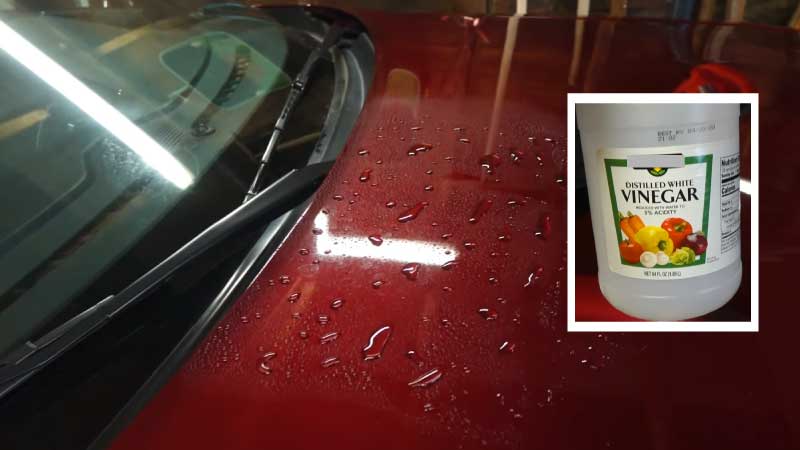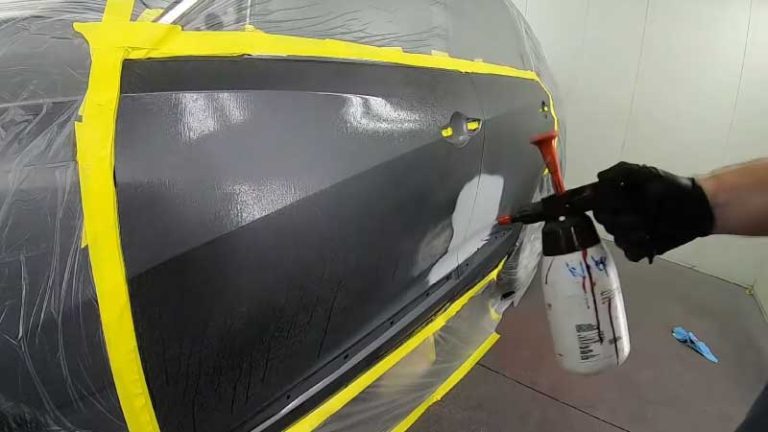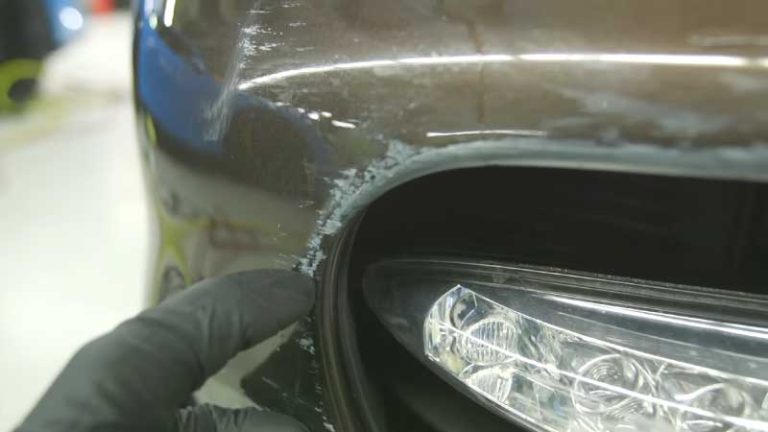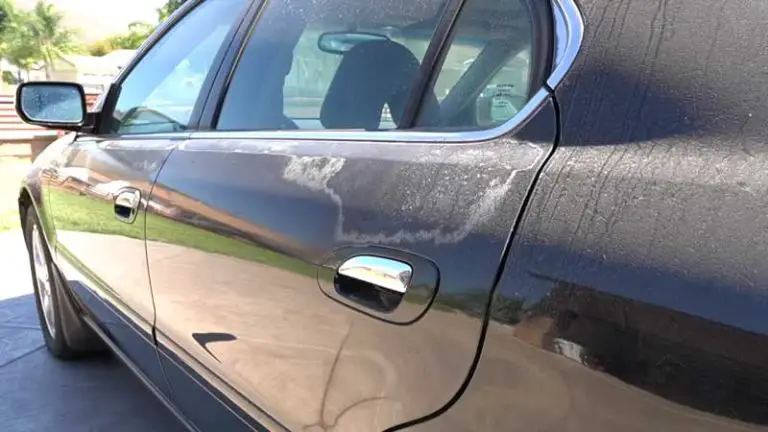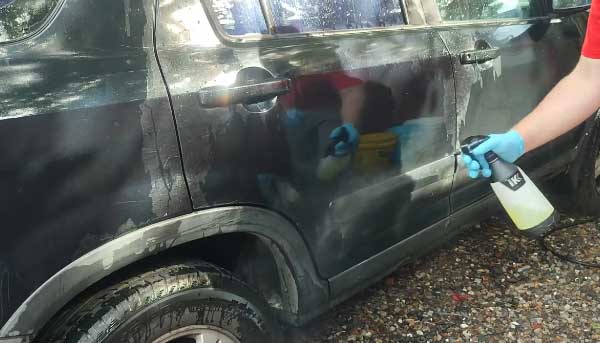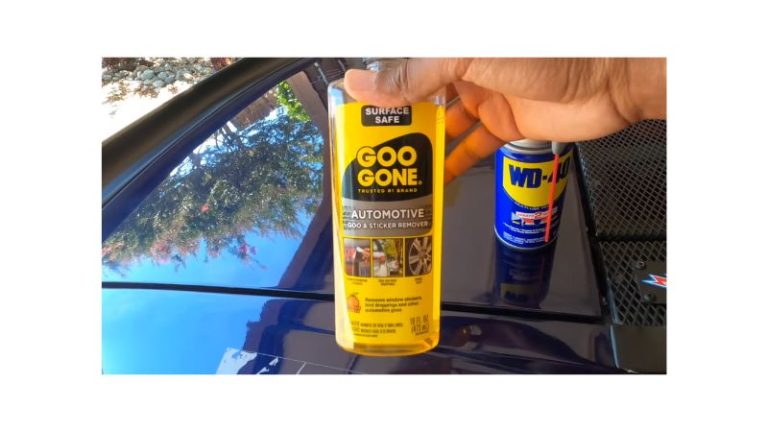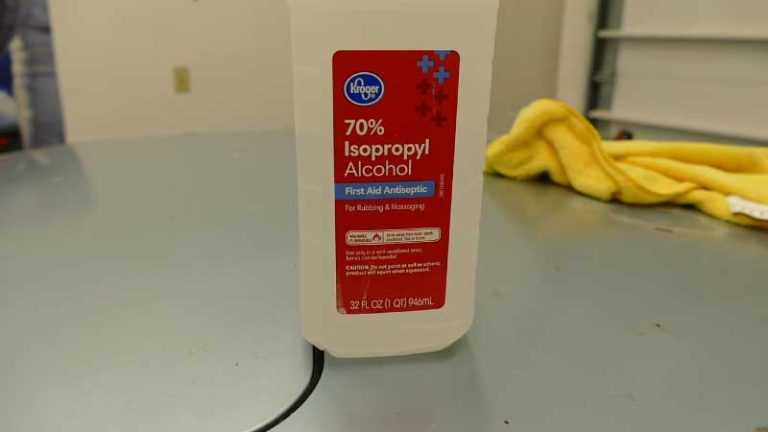Will Vinegar Damage Car Paint: Will it Truly Ruin Your Car?
Vinegar will damage car paint if used directly on the surface. However, vinegar diluted with water is safe to use for cleaning car paint.
Vinegar is an acidic material, and when applied undiluted, it can remove the paint’s protective layer, damaging the car’s gloss. When mixed with water, vinegar becomes a gentle cleaner that may safely remove dirt, filth, and stains from the paint without damaging the surface.
This makes the vinegar and water mixture a safe and economical option for maintaining the cleanliness and appearance of your car’s paint job.
The Use Of Vinegar For Car Cleaning
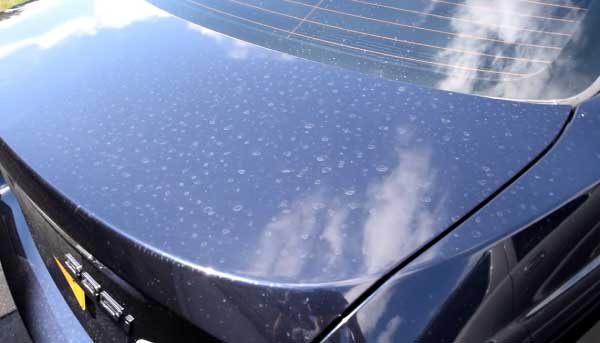
There is no doubt that, vinegar is a popular choice for cleaning cars because of its effectiveness in removing dirt and stains. It is a natural and eco-friendly option that does not contain harsh chemicals. When used properly, vinegar can help restore the shine of car paint and leave a clean finish.
It can be mixed with water and used as a cleaning solution for windows, mirrors, and other surfaces without causing any damage to the paint. However, it is important to note that vinegar should be used in moderation and not left on the paint for extended periods of time, as it can potentially cause some damage.
Overall, vinegar is a safe and affordable option for car cleaning, but it should be used with caution and followed by proper rinsing and drying.
Understanding Vinegar’s Chemical Properties
Vinegar’s chemical properties and composition can potentially have an impact on car paint. Vinegar is acidic due to its acetic acid content. This acidity can affect the pH level of vinegar, which typically ranges from 2 to 3. The low pH level of vinegar can potentially damage the paint of a car if not used correctly.
The acetic acid in vinegar can react with the chemicals in car paint, resulting in fading or discoloration over time. It is important to note that prolonged exposure or excessive use of vinegar on car paint may increase the risk of damage.
Therefore, it is advisable to exercise caution when using vinegar as a cleaning agent for your car, and to dilute it properly to minimize any potential harm to the paint.
Will Vinegar Damage Car Paint? The Impact
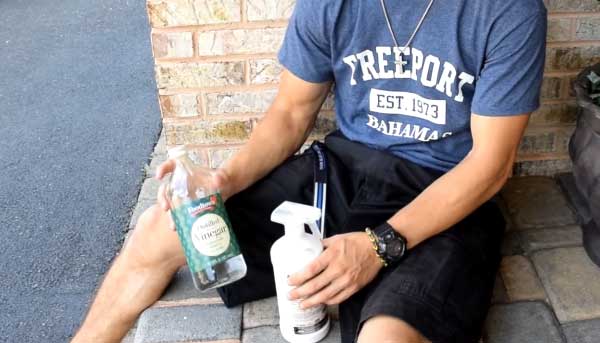
The impact of vinegar on car paint has been a subject of interest in various experiments and studies. Different types of vinegar have been tested to understand their effect on paint surfaces. It is crucial to note that vinegar, especially when used in high concentrations or for prolonged periods, can potentially damage car paint.
The acidic nature of vinegar can gradually eat away at the protective layers of paint, leading to discoloration or even corrosion. While vinegar may be effective in cleaning certain surfaces, it is advisable to exercise caution when using it on cars.
To protect the car’s paint, it is recommended to use car-specific cleaning products that are formulated to safely and effectively maintain the paint’s integrity. Regular cleaning and maintenance will help preserve the appearance and longevity of the car’s paint job.
Causes of Higher or Lower Car Paint Damage
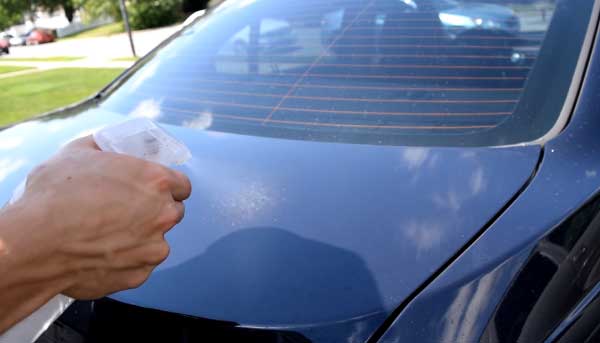
Factors that influence the degree of damage to car paint when using vinegar are the concentration of vinegar utilized, duration of exposure, and the surface condition of the car paint. The concentration of vinegar used determines its potency to potentially cause damage.
The longer the car paint is exposed to vinegar, the higher the likelihood of damage. Moreover, the surface condition of the car’s paint plays a crucial role. If the paint is already fragile or chipped, vinegar can exacerbate the damage.
It is important to note that vinegar, when used in moderation and with precautions, is unlikely to cause significant harm to car paint. However, it is always advisable to conduct a spot test before applying vinegar to a larger area to evaluate any potential adverse effects.
Read Also: Will Goo Gone Damage Car Paint
Is Vinegar a Safe Alternative To Harsh Chemicals?
Vinegar is often regarded as a safe alternative to harsh chemicals for car cleaning. It offers numerous benefits for maintaining the paint on your car. Firstly, vinegar effectively removes dirt, grime, and mineral deposits without causing damage to the paintwork.
It’s also a natural degreaser, making it ideal for removing stubborn stains and grease marks. In addition, vinegar can help neutralize odors inside your car. However, there are precautions to consider when using vinegar on car paint. It is important to dilute the vinegar with water to prevent any potential abrasiveness.
Furthermore, test the vinegar solution on a small, inconspicuous area of your car to ensure there is no adverse reaction. By following these guidelines, you can safely enjoy the benefits of vinegar for car cleaning without risking any damage to your car’s paint.
Other Cleaning Agents That Can Be Used
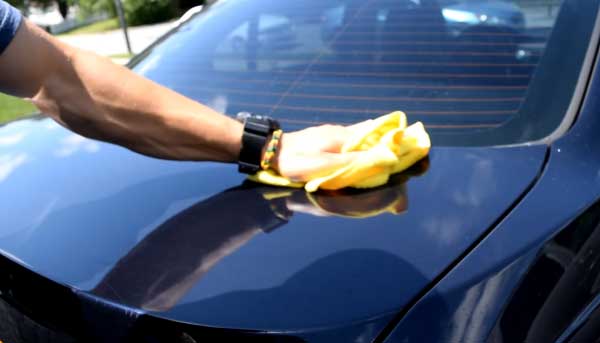
Vinegar is a popular and effective cleaning agent for car paint. However, there are other alternatives to vinegar that can be used for car cleaning. One option is dish soap diluted in water. It is safe for car paint and can effectively remove dirt and grime.
Another alternative is rubbing alcohol, which is particularly effective at removing sticky substances like tree sap or tar. However, it should be used sparingly and with caution, as it can potentially remove the car’s wax coating. Another option is car-specific cleaning solutions, which are specifically formulated to clean and protect car paint.
These solutions are designed to effectively remove dirt without damaging the paint. Ultimately, the choice of cleaning agent depends on personal preference and the specific cleaning needs. It is important to always test a small area first and follow the manufacturer’s instructions for the best results.
Can Nail Polish Remover and Vinegar Both Damage Car Paint?
Using nail polish remover and car paint in combination is not recommended. Nail polish remover contains harsh chemicals that can strip away the paint’s protective layer and cause discoloration. Similarly, vinegar is acidic and can also harm car paint if used improperly. It’s best to stick to gentle car-specific cleaners to maintain the integrity of your vehicle’s paint job.
Protecting Car Paint From Damage
Regular maintenance is essential for protecting your car’s paint from damage. By following best practices, you can keep your car’s paint in good condition for longer. First, avoid using vinegar on your car, as it can potentially damage the paint.
Instead, use a PH-neutral car wash soap and a soft sponge or microfiber cloth to gently clean your car. Secondly, regularly waxing your car can provide a protective layer that shields the paint from environmental elements such as UV rays and pollutants.
Additionally, parking your car in a shaded area or using a car cover can prevent the paint from fading or cracking. Lastly, be cautious when using automatic car washes, as their brushes and chemicals can scratch the paint. By taking these precautions and performing routine maintenance, you can ensure that your car’s paint stays intact and retains its glossy appearance.
Frequently Asked Questions: Will Vinegar Damage Car Paint?
Can Vinegar Damage Car Paint?
Yes, vinegar can potentially damage car paint due to its acidic nature. It is recommended to use proper car cleaning products.
How Should I Use Vinegar To Clean My Car?
To safely clean your car with vinegar, dilute it with water, apply it using a soft cloth or sponge, and rinse thoroughly afterward.
Is There An Alternative To Vinegar For Cleaning Car Paint?
The short answer is yes. You can use gentle car wash soaps or specialized automotive cleaners to clean your car’s paint without the risk of damage.
Conclusion
Vinegar can potentially damage car paint if used incorrectly or in high concentrations. Although it has some cleaning properties, its acidic nature can strip away the protective layers of paint and leave behind marks or streaks. It is best to avoid using undiluted vinegar or leaving it on the car’s surface for prolonged periods.
Instead, opt for safer alternatives such as car washing soap or automotive cleaners specifically designed for removing dirt and grime without harming the paint. Regularly waxing and maintaining the car’s paintwork is essential to providing a protective barrier against potential damage from external factors.
Remember, prevention is key when it comes to protecting your car’s paint job. By following these precautions, you can avoid any potential harm and keep your vehicle looking pristine for years to come.

